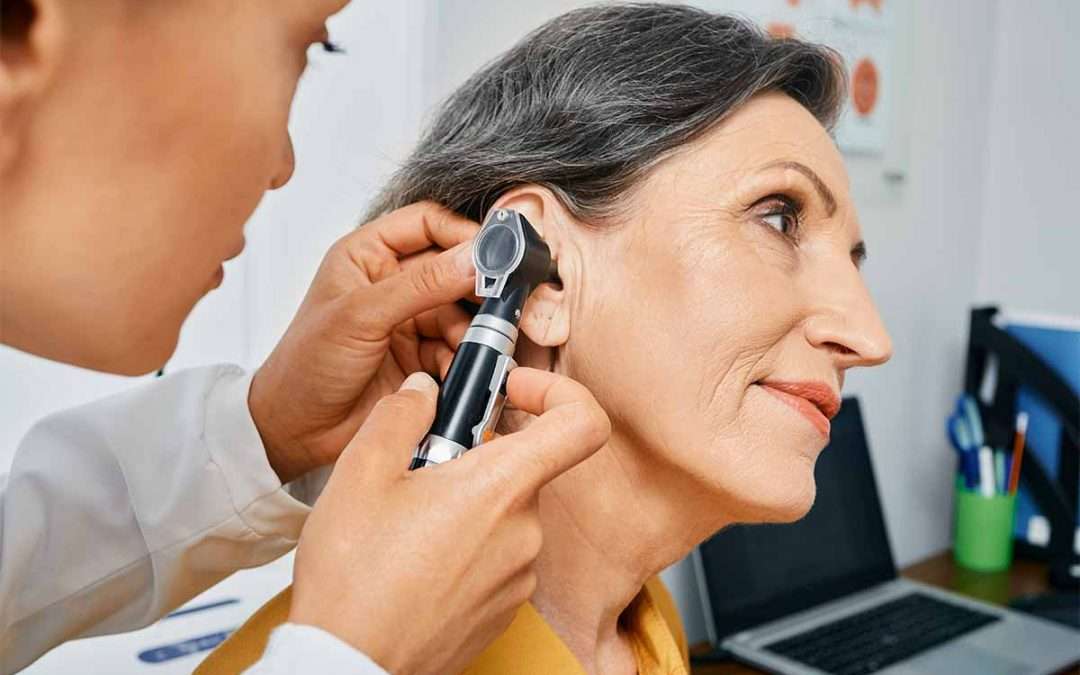Most cases of hearing loss are a matter of getting older. However, the human body is a complex thing; every part (surprisingly or unsurprisingly) is connected to everything else in one way or another. This means a disease originating in one part can end up affecting another part. Such is the case with the ears and a number of medical conditions you might not have thought would have anything to do with hearing. Here are five systemic diseases that are associated with hearing loss.
Diabetes
Diabetes mellitus is a disease involving an impaired ability to produce the insulin hormone. Insulin is responsible for helping the cells of the body take up glucose from the bloodstream. Without enough insulin managing this process, too much glucose remains in the bloodstream after being digested from the carbohydrates in your food.
Long-term elevated blood glucose levels can eventually result in nerve damage to the inner ear. On the other hand, low blood sugar (from not eating enough carbohydrates or taking too much insulin), can interfere with nerve signals traveling from the inner ear to the auditory centers of the brain.
People with diabetes are at double the risk of developing hearing loss compared to a non-diabetic of the same age.
Though hearing loss can be part of diabetes, it’s not likely to be the first sign of it. Early symptoms of diabetes can include:
- Needing to urinate often, particularly at night
- Feeling constantly thirsty
- Unexplained weight loss
- Increased appetite
- Fatigue
- Sores that are slow to heal
Rheumatoid arthritis
Rheumatoid arthritis is a chronic autoimmune disease. Autoimmune diseases are those when the immune system, normally quite helpful at defending the body against invading pathogens, turns against its own. The body attacks its own cells and tissues, causing inflammation, damage, and dysfunction.
Rheumatoid arthritis involves inflammation and pain in the joints of the body, most often the hands, wrists, ankles, and knees. The connection between rheumatoid arthritis and hearing loss is thought to be largely due to the pain medications used to manage the arthritis. However, hearing loss can also potentially be caused by autoimmune damage to the inner ear, a condition called autoimmune inner ear disorder. The hearing loss caused by rheumatoid arthritis (or its treatment) tends to be in the higher frequencies.
Other forms of arthritis linked to hearing loss include psoriatic arthritis and juvenile idiopathic arthritis.
Lupus
Another autoimmune disease, systemic lupus erythematosus, can have a number of different causes. Potential triggers include genetic mutations, inflammation, medications, environmental factors, and dysfunction of the immune system. Immune cells of the body attack other cells across various organs, including kidneys, skin, the brain, lungs, and muscles.
Lupus can take a while to diagnose accurately because its symptoms can be so variable and often mimic those found in other diseases. Common symptoms of lupus include:
- Fatigue
- Fever
- Joint pain and stiffness
- Skin lesions
- Shortness of breath
- Chest pain
- Dry eyes
- Confusion and memory loss
- Headaches
In some cases, hearing loss can be the first noticeable symptom of lupus. It is thought to be caused by autoimmune damage to the hair cells of the inner ear. Sudden hearing loss can also be caused by temporary lack of blood flow to the inner ear. Higher pitches tend to be affected first; eventually lower pitched sounds are also involved.
Viral infections
Unsurprisingly, viruses have also made their way into this list. Infectious diseases, including those caused by viruses, are the most common category of systemic disease to cause a hearing disorder.
Hearing loss can be found in systemic infections caused by:
- Cytomegalovirus, the most common infection present in babies at birth
- Rubella, another congenital infection, with hearing loss found in up to 60% of affected babies
- Varicella-zoster, more commonly known as the chickenpox virus
- Human immunodeficiency virus, though the link between HIV and hearing loss is not fully understood
Viral infection of the nerves used for hearing, or associated inflammation from the virus, can lead to sensorineural hearing loss and vertigo. The medications used to treat some viruses, such as HIV, may also be responsible for causing hearing damage.
Bone diseases
The links between hearing loss and autoimmune diseases or viral infections are easier to understand. But diseases of the bone? Well, surprise! Ears contain tiny bones known as ossicles. Ears are also attached to the head, which – surprise! – also contains bones (known as the skull or, if you want to get fancy, the cranium).
Diseases of bone that are associated with hearing loss include:
- Osteogenesis imperfecta, a connective tissue disorder resulting in a high risk of bone fractures
- Osteopetrosis, a rare disorder involving abnormal bone growth
- Paget’s disease, a chronic condition causing abnormal growth and weakening of certain bones
- Fibrous dysplasia, which occurs when abnormal fibrous tissue replaces healthy bone
Hearing loss from these bone diseases can be due from pathological fractures of the ossicles, such as in osteogenesis imperfecta, or abnormal cranial bone growth leading to compression of nerves or blockages of structures needed for normal hearing. Some of these diseases of the bone may also lead to a situation called ossicular fixation. If the ossicle bones are unable to properly vibrate in response to sound, you end up with conductive hearing loss.
If you do realize your hearing is not what it once was, first ask yourself – am I getting old? If the answer is yes, and you have no other symptoms of systemic disease, you may consider paying a visit to an audiologist or hearing (ENT) doctor for a hearing check. If the answer might be yes but you don’t think you’re that old, your family doctor should be your first stop, especially if you have other unexplained symptoms that need explanation. The human body is full of surprises, after all.

